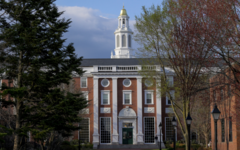In a significant legal step, Harvard University has filed a federal lawsuit against the Trump administration to challenge a proposed $2.2 billion cut in federal funding that threatens its academic integrity and ongoing research initiatives. The feud between the prestigious university and the administration intensified after Harvard rejected demands aimed at curtailing its diversity programs and addressing accusations of anti-Semitism on campus.
In a statement, Harvard's president Alan M. Garber articulated the severe consequences posed by the funding freeze, emphasizing its potential impact on vital research projects, including those focused on pediatric cancer, Alzheimer’s disease, and Parkinson’s disease. “The consequences of the government's overreach will be severe and long-lasting,” he stated, underscoring the importance of federal funding partnerships in facilitating critical scientific research.
The White House quickly countered, labeling federal assistance to Harvard as a “gravy train” that benefits overpaid administrators at the expense of taxpayers. Harrison Fields, a spokesperson for the Trump administration, expressed that taxpayer funds are a privilege that should not be taken for granted. The escalating tension also encompasses threats to Harvard's ability to accept international students.
Harvard's lawsuit argues that the government's funding decisions are part of a broader strategy to exert control over its academic decisions, jeopardizing the institution’s independence. Despite the administration’s claims surrounding anti-Semitism, Garber has stressed the university's commitment to addressing such issues through internal task forces, indicating proactive measures are underway.
Harvard is not alone in facing scrutiny; other Ivy League institutions have also had federal funding withheld, with prominent schools like Cornell University and Brown University similarly threatened with cuts. In contrast to Harvard's firm stance, many universities have opted to comply with some of the administration's demands to ensure the continuation of their financial support, illustrating a complex and fraught relationship between educational institutions and federal oversight.
As the situation develops, the role of universities in enabling independent research amidst political pressures remains a critical topic of discussion, raising significant questions about academic freedom in the current climate. The legal battle will surely be a defining moment for Harvard as it defends its mission against growing governmental control.


















